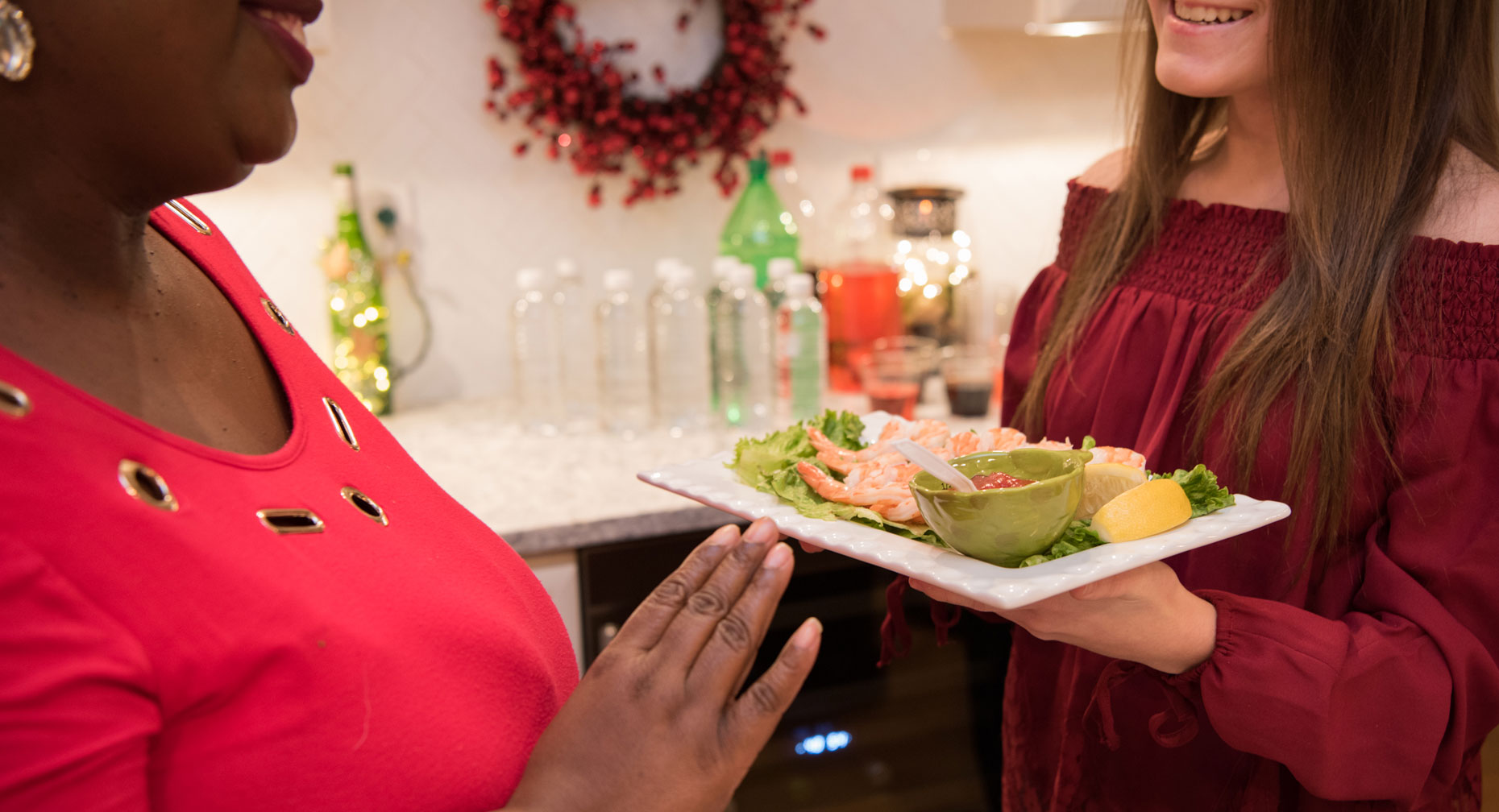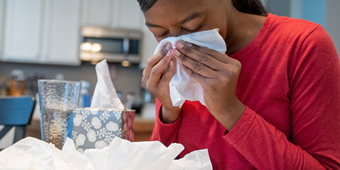When Food Allergies Come Home for the Holidays

Answer a few questions and we'll provide you with a list of primary care providers that best fit your needs.
While the holidays may be the most wonderful time of the year, they aren't the simplest for those with food allergies.
Planning ahead will make celebrations more festive for everyone, whether you're hosting or being a good guest.
People with food allergies aren't just being picky eaters. In fact, traditional holiday foods (like green bean casserole or Christmas cookies) contain ingredients that could cause a life-threatening reaction. Planning ahead will make celebrations more festive for everyone, whether you're hosting or being a good guest.
Tips for Hosting
If you're hosting loved ones with food allergies, you get the opportunity to make their day by helping them to feel as worry-free as possible. Here are some ways to make your guests comfortable:
 Ask first about food allergies: When you invite friends or family members to your home, start the conversation about food allergies and be open to learning. The most common food allergies are to milk, wheat, eggs, soy, tree nuts, peanuts, fish and shellfish. Unfortunately, these foods can hide in places you would never expect (for example, a self-basting turkey may contain soy, wheat and dairy). Read labels and even save them for your guests, to give extra assurance.
Ask first about food allergies: When you invite friends or family members to your home, start the conversation about food allergies and be open to learning. The most common food allergies are to milk, wheat, eggs, soy, tree nuts, peanuts, fish and shellfish. Unfortunately, these foods can hide in places you would never expect (for example, a self-basting turkey may contain soy, wheat and dairy). Read labels and even save them for your guests, to give extra assurance.- Focus on whole, simple foods. The best way to approach allergy-friendly menu planning is focusing on whole and simple foods. Skip complex casseroles or find an allergen-safe version online. Easy substitutes exist. You can switch out all-purpose flour for gluten-free and sub applesauce or flax meal for eggs. Non-dairy milks are plentiful nowadays, as are many other allergen-free foods.
- Learn about cross-contamination: Cross-contamination occurs when a food allergen is transferred accidentally to a place it shouldn't be. If you decide to make an "unfriendly" dish, you can stop cross-contamination by making sure that serving utensils stick with their original dish. You can also encourage extra hand washing and place hand wipes around your home.
Tips for Guests
If you or your child have food allergies, you know it can be overwhelming at the beginning. Go out of your way to make it easier on your host by following these tips:
- Talk in advance with your host. Don't spring food allergies on your host at the last minute. Interact with her beforehand in a way that educates and doesn't offend. Let her know that you are happy to help in any way that you can, whether that means preparing food with her or bringing your own food.
- Bring your own safe food. Sometimes it's simplest for everyone if you just bring your own food, for yourself or for your child. Let your host know that doing this is no problem.
- Remind your kids of your family rules. Before you go to someone's house, go over the rules with your child with food allergies. Reinforce that he can only eat the foods that you OK. It might be a good idea to give him a big snack right before you leave so that he isn't tempted to eat food that hasn't been approved.
- Make sure your child is always supervised. Decide with your partner on a game plan for watching your child with food allergies, especially if she is too young to know your family rules. Plan a signal to easily change the guard, so that each of you has time to socialize without worry.
- Consider hosting at home. If you or your child have food allergies, it may be best for you to just offer to host at your home. You already have the know-how to make delicious food that is allergy friendly. When your guests offer to help or ask what they can bring, you could ask them to come early to clean or give them recipe ideas.
Answer a few questions and we'll provide you with a list of primary care providers that best fit your needs.
Source: Food Allergy Resource and Education (FARE); eatright.org; American Academy of Allergy, Asthma and Immunology; American College of Allergy, Asthma and Immunology; National Jewish Health; National Peanut Board




